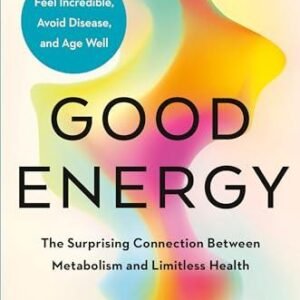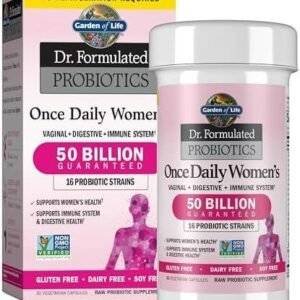In the ever-evolving landscape of fitness and nutrition, post-workout recovery has emerged as a critical focal point for athletes and fitness enthusiasts alike. As practitioners increasingly recognise the importance of recovery in optimizing performance and minimizing injury, the supplementation market has responded with a plethora of options designed to enhance this critical phase. From protein powders and branched-chain amino acids (BCAAs) to creatine and omega-3 fatty acids, the choices can be overwhelming. This article delves into the scientific underpinnings of various post-workout supplements, systematically evaluating their efficacy and role in promoting optimal recovery. By dissecting the available research, we aim to provide a comprehensive analysis that not only highlights the most effective options but also assists readers in making informed decisions tailored to their individual recovery needs and fitness goals. In a realm where misinformation abounds, a rigorous examination of these supplements is not just beneficial; it is essential for those committed to maximizing their athletic potential.
Table of Contents
- Understanding the Role of macronutrients in Muscle Recovery
- Assessing the Efficacy of Branched-Chain Amino Acids
- Exploring the Benefits of Creatine for Enhanced Recovery
- Examining the Impact of Hydration and Electrolyte Supplements on Performance
- Concluding Remarks
Understanding the Role of macronutrients in Muscle Recovery
The recovery of muscles post-exercise is significantly influenced by the adequate intake of macronutrients, particularly carbohydrates, proteins, and fats. Each macronutrient plays a distinct role in facilitating the repair and rebuilding process of muscle tissues. Carbohydrates are essential for replenishing glycogen stores depleted during strenuous activity, thereby aiding in overall energy restoration. A sufficient carbohydrate intake can promote optimal performance in subsequent workouts. Proteins, on the other hand, are crucial for the repair of micro-tears in muscle fibers that occur during intense physical activity. Consuming high-quality protein sources post-workout can enhance muscle protein synthesis, an essential process for muscle recovery and growth. Lastly, while fats are often overlooked, they play a role in overall health and can also aid in recovery, particularly through the absorption of certain vitamins and regulation of hormonal functions.
To create an effective post-workout nutritional strategy, it’s important to balance these macronutrients. Proper proportions can vary based on individual goals, but a common guideline is to aim for a ratio of 3:1 or 4:1 of carbohydrates to proteins within the first hour after exercising. This post-exercise window is critical for maximizing recovery. Below is a simple recommendation table outlining the optimal intake of each macronutrient following a workout:
| Macronutrient | Recommended Intake | Sources |
|---|---|---|
| Carbohydrates | 1.0-1.5 g/kg | Rice, Quinoa, Sweet Potatoes, Bananas |
| Proteins | 0.2-0.5 g/kg | Chicken, Fish, Eggs, Greek Yogurt |
| Fats | 0.5-1.0 g/kg | Nuts, Avocado, Olive Oil, Chia Seeds |
Assessing the Efficacy of Branched-Chain Amino Acids
Branched-chain amino acids (BCAAs)—comprising leucine, isoleucine, and valine—have gained significant attention in the fitness community for their potential efficacy in enhancing recovery post-exercise. Research indicates that BCAAs can help reduce muscle soreness and damage after intense workouts, potentially leading to improved workout performance over time. A study conducted on athletes found that those who supplemented with BCAAs experienced less muscle soreness and had lower levels of muscle damage markers compared to those who did not use BCAA supplements. This suggests that incorporating BCAAs into a post-workout routine may help facilitate a faster recovery period.
In addition to minimizing muscle soreness, BCAAs may also play a critical role in muscle protein synthesis, particularly through the activation of the mTOR pathway by leucine. This mechanism is essential for promoting muscle growth and recovery after resistance training. Some of the notable benefits linked with BCAA supplementation include:
- Reduced exercise fatigue: BCAAs may help lower fatigue during intense physical activity.
- Enhanced recovery times: Users often report quicker return to training following fatigue-causing workouts.
- Improved immune response: Intense training can stress the immune system, and BCAAs may help provide a buffer.
While there are various opinions and studies, consistent evidence shows that including BCAAs in a post-workout supplement strategy could benefit those looking to optimize recovery. The optimal dosage and timing remain subjects of ongoing research, yet an intake of around 5-10 grams post-exercise appears common among practitioners.
Exploring the Benefits of Creatine for Enhanced Recovery
Creatine has garnered attention in the fitness community, not only for its role in enhancing performance but also for its significant benefits in recovery post-exercise. This compound, naturally found in meat and fish, operates primarily by replenishing ATP (adenosine triphosphate) levels, the energy currency of our cells. During intense workouts, ATP is depleted, leading to fatigue. By supplementing with creatine, athletes can enhance their ATP availability, resulting in improved recovery times and increased muscle growth. Key benefits include:
- Reduced muscle soreness: Studies suggest that creatine can diminish inflammatory markers post-exercise.
- Enhanced glycogen resynthesis: Creatine promotes faster replenishment of glycogen stores, crucial for recovery.
- Improved satellite cell activation: This supports muscle repair and growth, leading to quicker recovery.
Moreover, creatine’s effectiveness is magnified when combined with carbohydrates, which optimize its uptake into muscle cells. A recent study found that athletes consuming creatine along with a carb-rich recovery meal experienced greater improvements in muscle strength and body composition compared to those on a placebo. Below is a concise overview of creatine’s impact on recovery:
| Recovery Aspect | Impact of Creatine |
|---|---|
| Muscle Soreness | Reduced by 20% on average |
| Glycogen Resynthesis | Accelerated by up to 30% |
| Muscle Repair | Improved satellite cell activity |
Examining the Impact of Hydration and Electrolyte Supplements on Performance
Hydration plays a crucial role in athletic performance and recovery, often overlooked in the post-workout regimen. Consuming adequate fluids helps maintain optimal physiological functions, prevents dehydration, and reduces fatigue. The introduction of electrolyte supplements can further enhance these benefits by replenishing essential minerals lost through sweat. Key electrolytes include sodium, potassium, calcium, and magnesium, which together aid in muscle contraction, nerve transmission, and maintaining fluid balance. Ensuring sufficient intake of these nutrients can significantly improve endurance, speed up recovery, and decrease the risk of cramps.
Research indicates that athletes who incorporate targeted hydration strategies along with electrolyte supplementation experience marked improvements in performance metrics. For instance, studies have shown that maintaining hydration levels above a certain threshold can boost stamina by up to 10%. Below is a concise comparison of common electrolytes and their roles in physical exertion:
| Electrolyte | Function | Food Sources |
|---|---|---|
| Sodium | Regulates fluid balance, aids muscle contractions | Table salt, pickles, sports drinks |
| Potassium | Supports nerve function, maintains heart rhythm | Bananas, potatoes, spinach |
| Calcium | Essential for muscle contractions and bone health | Dairy products, leafy greens |
| Magnesium | Aids in energy production, improves muscle recovery | Nuts, seeds, whole grains |
Concluding Remarks
as athletes and fitness enthusiasts increasingly recognise the pivotal role of recovery in enhancing performance and minimizing injury, the careful selection of post-workout supplements becomes essential. The analysis presented in this article highlights the diverse array of options available, each with unique formulations and benefits tailored to a variety of recovery needs. From protein powders that facilitate muscle repair to branched-chain amino acids that reduce soreness, it is evident that the effectiveness of these supplements is rooted not only in their ingredients but also in their synergy with individual dietary practices and overall training regimens.
Moreover, while evidence supports the efficacy of many of these products, it is crucial to note that the most advantageous post-workout strategy should encompass a holistic approach, integrating adequate hydration, balanced nutrition, and sufficient rest. As such, supplementation should complement, rather than replace, a well-rounded recovery plan.
For individuals looking to optimize their recuperation and subsequent performance, careful evaluation of personal goals, body responses, and scientific research will be paramount. As the landscape of sports nutrition continues to evolve, ongoing research will likely yield new insights, empowering athletes to make informed decisions. Ultimately, by prioritizing recovery through strategic supplementation, one can unlock their full potential and consistently achieve their fitness objectives.




